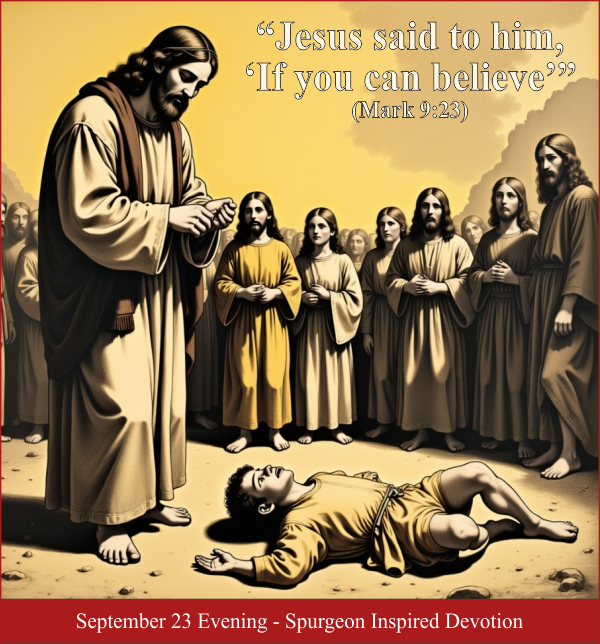“Jesus said to him, ‘If you can believe’” (Mark 9:23)
Christ’s disciples were unable to exorcise a demon. When Jesus appeared, the father of the afflicted child begged Him, “if You can do anything, have compassion on us and help us”. The “if” in the question betrayed a lack of faith. Either the man questioned Jesus’s willingness to caste out the demon or His ability to cast out the demon. Based on the record of Christ healing all who came to him, the only “if” was if the man had faith.
Jesus told him, “If you can believe, all things are possible to him who believes”. He seemed to say, “you came to me, because you know I heal everyone who comes to me. There shouldn’t be any “if” about my power, or my willingness, so the only “if” lies somewhere else.” The man offered a humble prayer for more faith, “Lord, I believe; help my unbelief!” (Mark 9:24).
Jesus cast out the demon. There’s a lesson here. We, like this man, often think there’s an “if”, but we put it in the wrong place. “If” Jesus can help me - “if” he can give me grace to overcome temptation - “if” he can take away my sin - “if” he can make me an overcomer? No, the “if” is if you can believe, He both can and will.
Of course, we’re not talking about asking for things God doesn’t want you to have. What saint would want something which isn’t according to His will? If a saint trusts Christ as Lord, by definition, he trusts Christ to give him only what’s good. Any other way of looking at this subject is blasphemy, which means “insulting or showing contempt or lack of reverence for God”.
“Now this is the confidence that we have in Him, that if we ask anything according to His will, He hears us. And if we know that He hears us, whatever we ask, we know that we have the petitions that we have asked of Him” (1 John 5:14–15).
.
|


